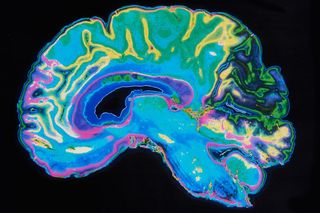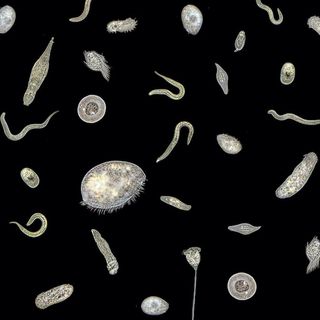
Women’s Brains Run 3 Years Younger Than Real Age; Men’s Run 2 Years Older
Men, your wrinkles are showing.

In the 19th century, the father of social psychology, Gustave Le Bon, wrote, that even “in the most intelligent races … there are a large number of women whose brains are closer in size to those of gorillas than to the most developed male brains. This inferiority is so obvious that no one can contest it for a moment; only its degree is worth discussion.”
Well, joke’s on that poor crazy, sexist, racist, awful man whose theory has long been disproved because new research is showing the female brain has an edge: women’s brains maintain for longer their ability to metabolise sugars — that is, brain food — in a way that sustains neural development. In fact, the metabolic age of female brains is roughly three years younger than women’s true ages. Male brains, on the other hand, run roughly two years older than their body’s physical age. Scientists say this may be why men are prone to more rapid cognitive decline in old age, performing less well than women on tests of memory, reason and problem-solving.
Related on The Swaddle:
Feeling Young Might Mean Your Brain Is Aging More Slowly
“We’re just starting to understand how various sex-related factors might affect the trajectory of brain aging and how that might influence the vulnerability of the brain to neurodegenerative diseases,” says senior author Dr Manu Goyal, an assistant professor of radiology at
Washington University School of Medicine in St. Louis. “Brain metabolism might help us understand some of the differences we see between men and women as they age.”
The specific process at play is called aerobic glycolysis, wherein the brain breaks down sugars to fuel development and maturation. The rest of the sugars the brain uses to power day-to-day thinking and doing. The brain devotes the proportion of fuel to aerobic glycolysis during youth. Over time, it devotes more and more its daily tasks, instead of to growth and development, until your 60s, when aerobic glycolysis bottoms out.
After measuring the flow of oxygen and glucose to the brains of 121 women and 84 men, aged 20 to 82, via PET scan. Women’s brains seem to maintain slightly higher levels of aerobic glycolysis for longer, operating at a metabolic age around 3.8 years younger than their actual age; men’s brains appear to operate at a metabolic age of roughly 2.4 years older than their real age. The gaps between the brains’ metabolic age and real age appeared even among the youngest participants.
Related on The Swaddle:
How Forgetting Makes You Smarter
“It’s not that men’s brains age faster — they start adulthood about three years older than women, and that persists throughout life,” says Goyal, who is also an assistant professor of neurology and of neuroscience. “What we don’t know is what it means. I think this could mean that the reason women don’t experience as much cognitive decline in later years is because their brains are effectively younger, and we’re currently working on a study to confirm that.”
Liesl Goecker is The Swaddle's managing editor.
Related


Scientists in Bhopal First to Map Indian Gut Microbiome
